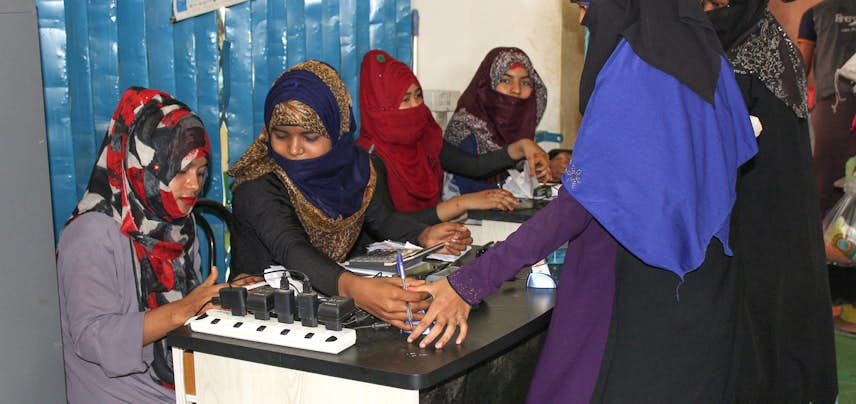Digital4development (D4D)
In 2018, Luxembourg’s Development Cooperation made a commitment to greater mobilisation of innovative partnerships approaches and instruments in the areas where Luxembourg has a specific comparative advantage, particularly as a major international financial centre, and in the data and information and communication technologies (ICT) sector.
Aware of the potential of the use of digital solutions such as communication systems, artificial intelligence or quantum technologies, and wishing to capitalise on the expertise produced around the digital transformation of Luxembourg’s economy, above all in the fields of research and the private sector, the Ministry decided in November 2019 to create an interministerial working group specifically dedicated to D4D. The aim of these meetings will be to put forward ‘made in Luxembourg’ solutions in response to the needs identified by our partners in the area of digitisation.
During 2019, Luxembourg also contributed, together with other development partners, to the setting up of a European D4D Hub. The remit of this Hub will be to support the digital transformation aspirations in our partner countries in Africa through European digital expertise, networks and know-how.
While this digital convergence holds out the promise of many benefits in terms of efficiency and impact, the risks and challenges should not be underestimated: cybercrime, the digital divide, violations of privacy and risks to data confidentiality. Digital solutions must therefore be promoted that mirror Luxembourg and European values, being open, reliable and inclusive. However, implementing them in concrete situations is not without its difficulties, or even failures: closed systems or systems produced in silos, conceptualisation that is rigid or not in line with actual requirements, etc. In order to apply the most important lessons learnt by the international community of practitioners, in December 2019 Luxembourg signed up to the 9 Principles for Digital Development — a set of practical guidelines that has now been adopted by more than 200 international organisations.
Specifically, and in close partnership with international institutions and stakeholders from Luxembourg’s civil society, private sector and academia and research, the Ministry is currently implementing more than 40 projects with specific digital elements, with a priority focus on Africa. In addition to this ongoing investment portfolio of more than EUR 70 million there is an annual contribution of EUR 4 million to emergency.lu, Luxembourg’s Development Cooperation’s flagship project. These initiatives cover areas of intervention as varied as the modernisation of public administration, inclusive finance and consumer protection, infrastructure and telecommunications, cyber-security, telemedicine, business development and fintech.
